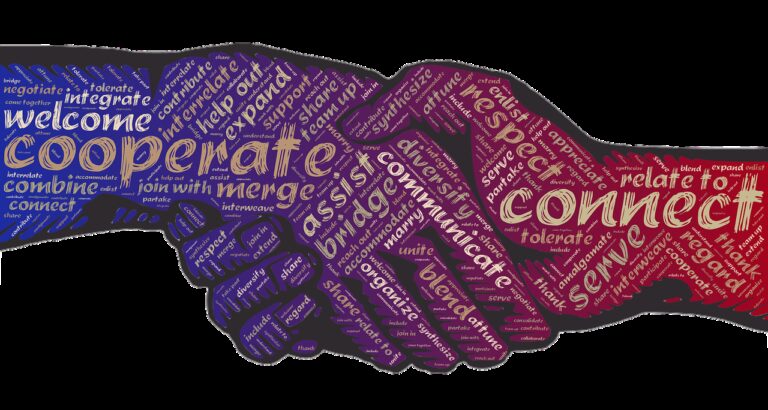Introduction
Welcome, dear readers, to a crucial discussion on a topic that affects us all: trust. At the heart of every relationship – whether it be romantic, platonic, or professional – lies the foundation of trust.
Trust is the invisible thread that weaves connections between individuals, fostering intimacy, loyalty, and mutual respect. It’s like the glue that holds everything together, making us feel secure and valued in our interactions with others.
Importance of Trust in Relationships
Trust is the cornerstone of healthy relationships. Without trust, relationships crumble like a house of cards in a storm.
It’s what allows us to feel vulnerable with someone else, knowing that they have our best interests at heart. Trust breeds loyalty and deepens emotional bonds between people.
When you trust someone, you can relax into the comfort of knowing they won’t betray your confidence or let you down. Furthermore, trust is essential for effective communication and collaboration in any relationship.
When there is trust between individuals, misunderstandings are less likely to occur as there is a foundation of faith in each other’s intentions and actions. This paves the way for open dialogue and problem-solving without fear of judgment or betrayal.
Overview of Trustworthiness Indicators
Now that we’ve established why trust is so vital let’s delve into how to recognize it in others. Trustworthiness indicators are like signposts along the road of relationships; they guide us towards those who are reliable and sincere.
These indicators can manifest in various ways through both actions and words. Some common indicators include consistency in behavior – when someone’s actions align with their words over time; dependability – being able to count on them when needed; transparency – openly sharing thoughts and feelings; integrity – sticking to moral principles even when it’s challenging; active listening skills – showing genuine interest in what others have to say; honesty – being truthful even when it’s uncomfortable.
Consistency in Actions and Words
One of the key aspects to consider when evaluating if someone is trustworthy is observing the consistency between their actions and words. Pay attention to whether they follow through on what they say they will do. If someone repeatedly promises one thing but fails to deliver, it may be a red flag that they are not reliable or truthful.
Trustworthy individuals align their actions with their words, demonstrating integrity and sincerity. Consistency can also be seen in how a person behaves in different situations and with various people.
Do they exhibit the same values and principles across all aspects of their life, or do their behaviors vary drastically? A trustworthy individual will often display a stable and reliable character, showing that you can rely on them to act consistently regardless of the circumstances.
Dependability and Reliability
Dependability and reliability are crucial factors in determining if someone is trustworthy. A person who is dependable can be counted on to fulfill commitments and obligations consistently. Look for signs that indicate whether the individual follows through on tasks, meets deadlines, and keeps promises.
Trustworthy individuals prioritize reliability because they understand its significance in building trust. Reliability extends beyond just completing tasks; it also encompasses how someone handles unexpected situations or challenges.
Pay attention to how the person responds when faced with adversity—do they remain steadfast and committed, or do they falter under pressure? Trustworthy individuals exhibit resilience and reliability even in challenging circumstances, showcasing their trustworthiness through consistent behavior.
Transparency and Open Communication
An essential aspect of trustworthiness is transparency in communication. Honest and open communication fosters trust by creating an environment where information flows freely without hidden agendas or deceit. When interacting with someone, consider how transparent they are about their intentions, thoughts, and actions.
Trustworthy individuals value honesty and clarity in communication. In addition to being transparent themselves, trustworthy individuals often encourage open dialogue where all parties feel comfortable expressing themselves honestly.
They listen attentively without judgment, fostering mutual understanding and respect through transparent communication channels. By promoting openness in conversations, trustworthy individuals build strong foundations for trusting relationships based on genuine interactions.
Assessing Communication Patterns
Active Listening Skills
When trying to determine if someone is trustworthy, pay close attention to how well they listen during conversations. Active listening involves not only hearing the words spoken but also understanding the emotions and intentions behind them.
A trustworthy individual will demonstrate genuine interest in what you have to say, maintain eye contact, nod in acknowledgment, and ask relevant questions to show their engagement in the conversation. They will also refrain from interrupting or dominating the discussion, allowing for a balanced exchange of ideas.
Moreover, active listening goes beyond just verbal cues. Watch for non-verbal signals such as body language and facial expressions that indicate the person is truly attentive to your words.
A trustworthy individual will exhibit open body language, facing you directly, leaning slightly forward, and mirroring your gestures to convey empathy and understanding. By observing these active listening skills in others, you can assess their level of sincerity and establish a foundation of trust based on effective communication.
Honesty and Integrity in Conversations
Another crucial aspect of assessing someone’s trustworthiness lies in evaluating their honesty and integrity during conversations. A trustworthy individual will always be transparent and forthcoming with information, avoiding veiled statements or half-truths that could lead to misunderstandings or deception. They will speak truthfully even when it may be difficult or uncomfortable because they prioritize building a relationship based on trust rather than preserving their own image.
Furthermore, pay attention to consistency in their words and actions over time. Trustworthy individuals do not resort to manipulative tactics or fabricate stories to manipulate situations for personal gain.
Instead, they uphold ethical standards by adhering to their values and principles even when faced with challenges or conflicts. By observing how someone handles themselves with honesty and integrity in conversations, you can gauge their reliability as a trustworthy companion on whom you can depend during both smooth sailing and turbulent times.
Considering Past Actions
Track Record of Keeping Promises
When it comes to determining who you can trust, looking at a person’s track record of keeping promises can speak volumes. Think about the times when they said they would do something and whether they followed through on their word.
Consistency in fulfilling commitments is a key indicator of someone’s reliability and integrity. If someone has a habit of making promises but rarely delivers, it might be a red flag that could make you think twice about trusting them.
Handling Conflicts and Challenges
Another aspect to consider when evaluating trustworthiness is how someone handles conflicts and challenges. Observe how they manage disagreements or stressful situations – do they resort to dishonesty, manipulation, or avoidance? A person who demonstrates maturity and honesty in navigating tough times is more likely to be trustworthy.
Someone who faces adversities with grace, communicates openly, and seeks resolution through constructive means is showing qualities that build trust. In essence, past actions serve as a roadmap to understanding an individual’s character and integrity.
By examining how someone has dealt with promises and challenges in the past, you can gain valuable insights into their reliability, honesty, and overall trustworthiness. Remember that actions speak louder than words; therefore, paying attention to these aspects can guide you in determining whether someone is deserving of your trust.
Seeking Feedback from Others
Asking for References or Recommendations
When trying to figure out who you can trust, one effective way is to seek feedback from others. Don’t be afraid to ask for references or recommendations from people who have interacted with the person in question.
You can reach out to colleagues, friends, or even online reviews to get a sense of their reputation and reliability. Hearing about someone’s behavior and actions from those who have firsthand experience can provide valuable insights into their character.
Paying Attention to Others’ Experiences with the Person
Another crucial aspect of seeking feedback is paying attention to others’ experiences with the individual you are trying to assess. Listen closely to what others have to say about their interactions with this person.
Do they speak positively about their reliability and honesty? Or do they express concerns about their trustworthiness?
Take note of any consistent patterns in feedback as these can offer important clues about whether this person is someone you can rely on. Seeking feedback from others is a key step in determining who you can trust.
By asking for references or recommendations and paying attention to others’ experiences with the person, you gather valuable information that can guide your decision-making process. Remember, trusting someone involves not only your own judgment but also considering the perspectives of those around you.
Gut Feeling and Intuition
Trusting Your Instincts
When it comes to determining who you can trust, never underestimate the power of your gut feeling. Our instincts are like internal alarm systems that alert us to potential dangers or red flags in a situation or with a person.
If something feels off or doesn’t sit right with you, it’s crucial to trust that instinct. Your intuition is a powerful tool that has been honed through years of subconscious processing of information, so don’t ignore its signals.
Trusting your instincts involves being in tune with your emotions and paying attention to the subtle cues your body gives you. It could be a feeling of unease in the pit of your stomach or a sense of discomfort when interacting with someone.
These feelings should not be taken lightly; they are often our subconscious minds processing information faster than our conscious thoughts can catch up. Trusting your instincts means giving weight to those feelings and using them as valuable data points in assessing trustworthiness.
Not Ignoring Red Flags
One common mistake people make when trying to figure out who they can trust is ignoring red flags or rationalizing away warning signs. Red flags can come in various forms, such as inconsistencies in someone’s stories, evasiveness when asked direct questions, or a general sense of dishonesty in their behavior. It’s essential not to brush these signals aside, hoping for the best or giving the benefit of the doubt excessively.
Ignoring red flags often leads to regrets later on when trust is broken or harm is done. When confronted with red flags, take them seriously and investigate further if needed.
Trust is built on transparency, honesty, and consistent behavior over time; if these elements are lacking or if something feels off about a person’s actions, it’s crucial not to turn a blind eye. Acknowledging red flags doesn’t mean jumping to conclusions but rather approaching relationships and situations with caution until trust can be established authentically and mutually.
Conclusion
Recap Importance of Trust
Trust is the cornerstone of any meaningful relationship. It’s the invisible thread that binds individuals together in a web of connection and understanding. Without trust, relationships crumble like a house built on shaky ground.
Trust is the foundation on which all successful interactions are built upon, whether it’s in friendships, family bonds, or professional partnerships. Building trust takes time and effort, but the rewards are immeasurable.
When you trust someone, you open yourself up to vulnerability and authenticity. You allow yourself to be seen and heard without fear of judgment or betrayal.
Trust fosters deep connections and emotional intimacy that enrich every aspect of your life. It creates a safe space where you can truly be yourself without pretense or masks.
Tips for Building Trustworthy Relationships
1. Communication is key: Open, honest communication is essential for building trust in any relationship. Be transparent about your thoughts, feelings, and intentions. 2. Consistency breeds trust: Show up consistently in your words and actions.
Reliability and dependability are crucial for earning someone’s trust. 3. Listen actively: Demonstrate empathy by actively listening to others without judgment or interruption.
4. Be honest with integrity: Always speak the truth with kindness and integrity; honesty is the bedrock of trustworthy relationships. 5. Follow through on promises: Keep your word and follow through on commitments; reliability builds credibility.
6.Trust your instincts: Pay attention to your gut feelings and intuition when assessing whether someone is trustworthy. While navigating relationships can sometimes be challenging when it comes to figuring out who you can truly trust, remember that every experience teaches us valuable lessons along the way.
Embrace each encounter as an opportunity to learn more about yourself and others; approach each interaction with an open heart and mind. By following these tips for building trustworthy relationships with sincerity and authenticity, you’ll cultivate strong bonds based on mutual respect and understanding – ultimately creating a world where trust reigns supreme!






